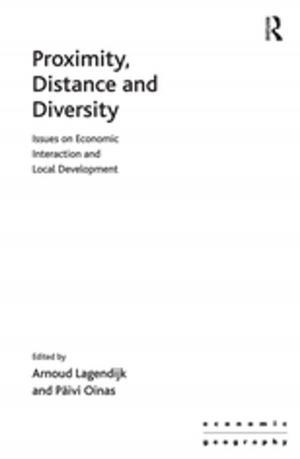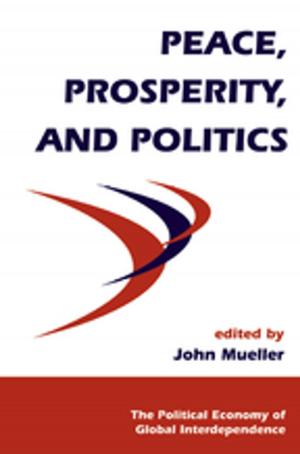Managing Culture and Interspace in Cross-border Investments
Building a Global Company
Business & Finance, Economics, International, Human Resources & Personnel Management, Organizational Behavior| Author: | ISBN: | 9781317399452 | |
| Publisher: | Taylor and Francis | Publication: | June 27, 2017 |
| Imprint: | Routledge | Language: | English |
| Author: | |
| ISBN: | 9781317399452 |
| Publisher: | Taylor and Francis |
| Publication: | June 27, 2017 |
| Imprint: | Routledge |
| Language: | English |
This book focuses on the dialectics between spatio-organisational gaps and local contexts that characterise cross-border investments. "Interspatial" investments – be it mergers & acquisitions (M&A) or greenfield investments – are usually characterised by what is referred to as "otherness", i.e. organisational and cultural distances of the firms involved in relation to their regional contexts.
At the same time, economic, political and socio-cultural linkages are decisive for attracting cross-border investments to regions and for providing firms with conditions supportive of their market success. As a consequence of being locked into complex structures of proximities, cross-border investments are situated in contested terrain. This terrain triggers learning processes in both regional actors and investors, which can result in the convergence of mindsets and organisational issues.
This book is unique in that it combines interspace (defined as the distance between the new owner and the cross-border venture), place (the target region), interpretation (perception and understanding of the investment by the actors involved) and context (institutions, actor networks and interaction), thus offering better understanding of recent processes of globalisation. Crossing disciplinary boundaries by integrating economic geography and management studies, the volume adopts an innovative and spatially informed perspective on foreign direct investments (FDI).
This perspective will be of great value to scholars, students and practitioners. The volume is inventive in its approach in that it offers fresh readings from interdisciplinary theoretical approaches and combines these with valuable empirical insights from developed as well as Emerging Economies.
This book focuses on the dialectics between spatio-organisational gaps and local contexts that characterise cross-border investments. "Interspatial" investments – be it mergers & acquisitions (M&A) or greenfield investments – are usually characterised by what is referred to as "otherness", i.e. organisational and cultural distances of the firms involved in relation to their regional contexts.
At the same time, economic, political and socio-cultural linkages are decisive for attracting cross-border investments to regions and for providing firms with conditions supportive of their market success. As a consequence of being locked into complex structures of proximities, cross-border investments are situated in contested terrain. This terrain triggers learning processes in both regional actors and investors, which can result in the convergence of mindsets and organisational issues.
This book is unique in that it combines interspace (defined as the distance between the new owner and the cross-border venture), place (the target region), interpretation (perception and understanding of the investment by the actors involved) and context (institutions, actor networks and interaction), thus offering better understanding of recent processes of globalisation. Crossing disciplinary boundaries by integrating economic geography and management studies, the volume adopts an innovative and spatially informed perspective on foreign direct investments (FDI).
This perspective will be of great value to scholars, students and practitioners. The volume is inventive in its approach in that it offers fresh readings from interdisciplinary theoretical approaches and combines these with valuable empirical insights from developed as well as Emerging Economies.















